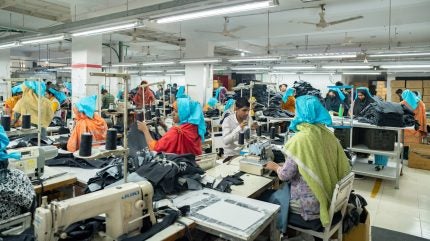
The Fair Labor Association (FLA)’s president and CEO Jeff Vockrodt argues ending the funds, which were being used to eradicate child and forced labour across the globe, will “weaken the ability of US companies to compete with manufacturers in countries where labour standards are less stringent”.
Over the past 20 years, ILAB’s initiatives have contributed to a significant reduction in child labour worldwide with a decline of 78m in the number of child labourers.
This achievement was partly facilitated by grants to international bodies, according to the US Department of Labor.
However, these efforts have ended as Elon Musk’s Department of Government Efficiency has ceased all grant activities under ILAB.
Programmes funded by these grants are also being shut down, according to an email sent to US Department of Labor staff that was acquired by The Associated Press.
FLA’s Vockrodt explains: “Companies, workers, and consumers all benefit from strong labour standards in global supply chains.”
Vockrodt also points out the elimination of grant programmes administered by ILAB will significantly damage US efforts to combat child labour and forced labour globally.
He adds: “I urge the US Administration to reverse these shortsighted cuts, which will not only harm workers but also make it more difficult for companies to comply with US forced labour laws.”
Earlier this month, the Global Commission on Modern Slavery and Human Trafficking warned concerted efforts would be needed to eliminate forced labour and human trafficking by 2030.



